Finding the right exit: Seeking good advice
In the latest in our series looking at exiting a business we look at the importance of getting the right professional advice when it comes to issues like tax
Most people who have been in business for a number of years should have learned that their accountant is not just there to add up the numbers, file accounts and work out the tax.
They have a thorough understanding of the business, how it works, its products, markets and people, and are therefore in a great position to be able to see its value in the future.
Change within the business of any sort can affect its value and a good accountant will help identify this and be able to discuss how the risks can be reduced or mitigated.
Accountants should be able to help plan and communicate the plan to the stakeholders. The same can be said of solicitors, familiar with any employment, property or other potential issues.
It is also important to be aware of the importance of tax mitigation when it comes to an exit strategy. For instance, if a business is handed or sold to the next generation, there will be a number of tax issues to address.
The family’s position in term of potential exposure to Capital Gains Tax and Inheritance Tax will be significantly affected by the transfer of the ownership of the business.
Just as a sale to a third party will have tax consequences, selling or transferring a family business needs to be understood and planned to mitigate the tax loss.
However, a transfer to other family members also provides a number of tax planning opportunities.
The best solution will depend upon a number of factors such as the family position, in terms of wealth and income both internal and external to the business itself, how much and how quickly the incumbent owners want to see the benefits of a sale of and the long-term intentions of the new owners.
It is very important to get an early understanding of the position and preferences of all involved to plan an approach which minimises the tax to a family, both at the time of the transfer and the future.
That is why it discussions are needed with professional advisers at an early point to get the appropriate structure in place.
There are other matters where that professional advice and knowledge can really help.
Consideration should be given to the fact that a family business may be run by two generations but there are often children of the current owners who are not involved or do not want to become involved in the business.
If the business is sold or given to one and no other children, then this can cause problems within the family.
Parents usually want to treat all their children equally, but this can be difficult when the value of a business is uncertain and likely to vary over a period of time, so achieving an equitable solution that all family members agree upon is difficult.
Professional advisers will help all concerned understand a realistic valuation of a business and the variations in the short and longer term as well as the risks involved within a business that can have a significant impact on its values.
Solicitors may need to understand the intentions of business owners when drafting clients’ wills as there can often be unintended consequences of such situations. Wills should be updated as soon as a handover of the family business is considered.
If differing siblings have different roles, shareholdings or involvement in the future business then a Shareholders’ Agreement may be necessary to clarify and document the situation. Again, professional advisers should be consulted when considering these matters.
If the incumbent owners wish to extract significant funds from the business or the new owners need to raise funds to buy-out their parents, then financial advice may be necessary to raise the new funds or invest the extracted funds.
It may take time to raise the finance as putting appropriate applications forward to lenders will need professional input and making the proposition to a lender or investor attractive will take time to prepare.
• To discuss any issues raised by this article please contact me on 01772 430000


